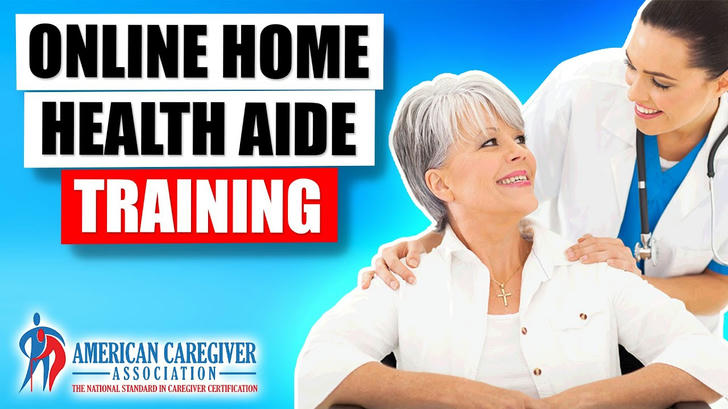Become a Home Health Aide (HHA): No extra cost!
Are you passionate about making a real difference in people's lives? A career as a Home Health Aide (HHA) offers a unique opportunity to provide compassionate care and support to those who need it most, right in the comfort of their own homes.

Why Become a Home Health Aide?
HHAs earn 30,000–45,000$/year while making a real difference. You’ll:
• Assist seniors/disabled clients with daily tasks (meals, bathing, meds).
• Work flexible hours – perfect for parents or students.
• Gain healthcare experience to advance into nursing or therapy roles.
• Enjoy job security – 48% faster growth than other fields.
And the best part? You don’t need a college degree or prior experience to start.
Your Path to Becoming an HHA: Low-Cost Training Resources
Worried about the cost of training? Here are some excellent resources that offer low-cost HHA training:
1.State-Funded Programs (California Example)
California’s Department of Public Health (CDPH) requires 120 hours of training (80 classroom + 40 clinical) for HHA certification. Many community colleges and nonprofits offer this if you qualify.
• Eligibility: Low-income individuals, veterans, or those receiving state aid (CalWORKs, Medicaid).
• How to apply:
• Visit CDPH’s HHA Program Page for approved trainers.
• Contact local centers like American Medical Careers – their HHA Classes often partner with state grants.
Even outside California, search “[Your State] + HHA training” – most states have similar programs!
2.Employer-Sponsored Training
Home care agencies like BrightStar Care or Right at Home frequently cover 100% of certification costs if you commit to working for them post-training.
• How it works:
• Apply for entry-level caregiver roles (no cert needed).
• Complete paid on-the-job training through platforms like CareAcademy.
• Get certified in 4–6 weeks while earning 15–18/hour.
American Caregiver Association partners with agencies nationwide – check their HHA Certification Hub for opportunities.
3.Nonprofit & Workforce Development Programs
Organizations like Goodwill and National Able Network use federal grants to fund HHA courses for underserved communities.
• Eligibility: Open to all, but priority given to single parents, immigrants, or those unemployed.
• What’s included:
• textbooks, uniforms, and exam fees.
• Job placement assistance post-certification.
4.Online Hybrid Courses
Platforms like CareAcademy offer discounted online HHA training (in-person clinicals still required).
• Cost: 0–200 (vs. $500+ elsewhere).
• Bonus: Study at your pace – perfect for busy schedules!
How to Apply and What Are the Qualifications?
• Specific requirements can vary by state and employer.
• Generally, you'll need to be at least 18 years old and have a high school diploma or GED.
• Background checks and drug screenings may be required.
• Completing an accredited HHA training program and obtaining certification will significantly enhance your job prospects.

Real Success Stories
Maria, 34, Texas: Maria, 34, had spent years raising her three kids in Houston, Texas, while her husband worked long hours as a truck driver. When her youngest started school, she longed to contribute to the family income but lacked formal training. A friend told her about Goodwill’s HHA program, funded by the (WIOA). Maria enrolled in a 4-week hybrid course through CareAcademy, balancing online modules during nap times and in-person clinicals on weekends.
“The instructors taught me how to handle diabetic care and use mobility devices safely,” Maria recalls. After passing her state exam, she joined a local hospice agency through American Caregiver Association’s job board. Within months, her empathy and attention to detail earned her a promotion to lead HHA. Now earning $22/hour with health benefits, Maria says, “I’m not just a paycheck – I’m giving families peace of mind during their hardest moments.”
James, 52, Florida: James, 52, had worked retail in Orlando, Florida, for 20 years before his store closed in 2022. Struggling to find work, he saw a flyer at his library about employer-sponsored HHA training from American Medical Careers. Skeptical but desperate, he applied to Addus HomeCare and was hired as a trainee.
The agency paid for his 120-hour training, including CPR certification and dementia care workshops. “The clinical rotations were intense,” James admits, “but my mentor taught me tricks to lift patients without straining my back.” After licensing, he was assigned to assist Mr. Thompson, a Vietnam veteran with Parkinson’s. Three months in, James’ hourly wage jumped from 15 to 19, and he now mentors new hires. “This job saved me – I’m proud to wear my scrubs every day,” he says.
Your Action Plan:Ready to start your rewarding career as an HHA?
• Google “[Your City] + Low-costHHA training” – Bookmark 3 programs.
• Call Local Agencies: Ask about paid training (e.g., Home Instead).
• Apply for Grants: Submit applications to 2–3 programs.
• Join Facebook Groups: Like “HHA Career Support” for tips.
• Study Materials: Use ACA’s Resources.
• Network: Attend virtual career fairs via CareAcademy.
Join the growing community of compassionate HHAs and make a lasting impact!
